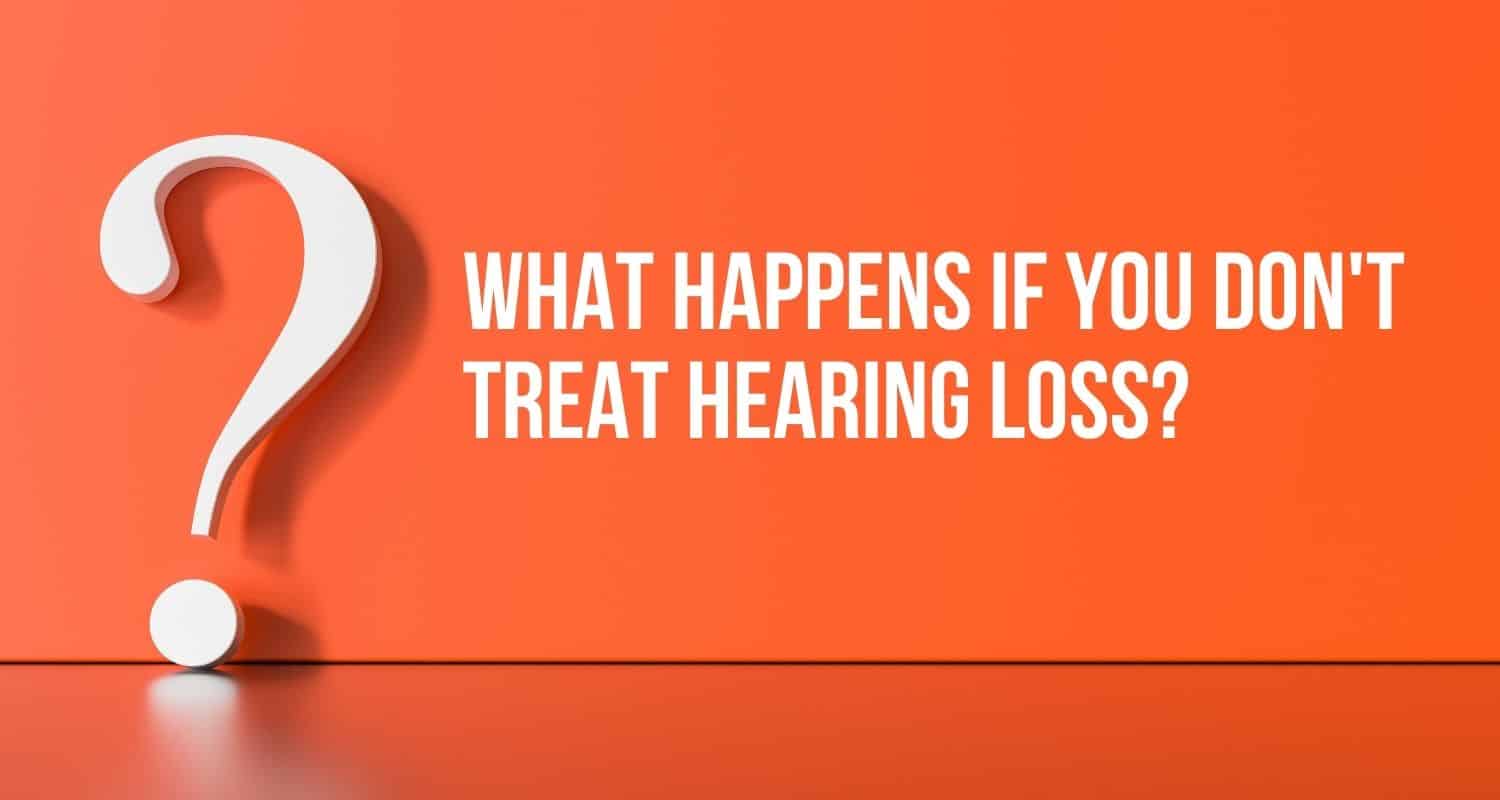
Do you think you may have hearing loss? Some common signs of hearing loss include struggling to follow conversations or having a hard time hearing on the phone. About 50 million Americans have hearing loss. But only 1 in 5 people who need hearing aids actually treat their hearing loss! Here’s what happens if you don’t treat hearing loss.
Are You Avoiding Thinking About Your Hearing Loss?
Maybe your hearing isn’t as good as it once was, and you’re ignoring your hearing loss. Let’s take a closer look at some of the main signs of hearing loss.
The most common signs of hearing loss include:
- Having difficulty understanding speech
- Struggling to hear the TV or hear on the phone
- Asking people to repeat themselves
- Avoid social situations because it’s just too hard to follow the conversation.
If this sounds familiar, why are you avoiding thinking about your hearing loss? Many people say things like “My hearing loss isn’t too bad yet” or “Other people are just mumbling a lot.” Maybe thinking about hearing loss is stressful, so you try not to think about it at all. Whatever the reason might be, avoiding your hearing loss is never a good idea.
What Happens if You Don’t Treat Hearing Loss?
If you don’t treat your hearing loss, you’ll soon notice a lot of changes in your overall health, your physical health, your social life, and even your close relationships. Hearing isn’t just about listening to the sounds around you. It’s also part of the way you keep yourself safe when you walk down the street, and it’s a huge part of how you connect with loved ones. It also impacts how well you can do your job and how much energy you have.
Relationships Suffer
Hearing loss affects your relationships a lot more than you might realize. Maintaining close friendships and connections is based on communication. And when you can’t hear clearly, communication starts to break down. You might not be able to share inside jokes, share quiet moments over breakfast, or chat with your kids on the phone.
Your family wants to help you communicate, so they might raise their voices or shout to help you hear. But even with the extra volume you still can’t quite make out what’s being said. When conversations are more challenging, you may start to feel isolated and alone. You might skip the family zoom hang out or avoid going to a gathering if you know there’ll be a lot of people there. If you don’t treat hearing loss, your relationships will suffer.
You Start to Feel Anxious
Untreated hearing loss can make you feel anxious. You may be worried about what your loved ones think about you, or nervous you’ll say something wrong. If you can’t quite hear what’s being said, you’re anxious that you’ll mishear and answer inappropriately. You might also feel more anxious when you’re outside or in a new place. You used to rely on your hearing to help you localize sounds and make sure nothing unexpected was happening around you, but with untreated hearing loss, you have to rely on your other senses to understand your environment.
You Feel Tired All the Time
Hearing loss can make you feel extremely tired. When you spend the whole day straining to hear, you use a lot of extra energy just to process sounds or guess at what’s being said. By the end of the day, you may be completely exhausted.
You Risk Rapid Cognitive Decline
Untreated hearing loss is linked to rapid cognitive decline. People with untreated hearing loss are far more likely to develop dementia or Alzheimer’s disease. This cognitive decline can start to affect your ability to think on your feet and it can also impact your memory.
Are You Ready to Treat Your Hearing Loss?
Treating hearing loss can help you hear clearly. You’ll be able to follow conversations, even in places with background noise. You’ll also strengthen your relationships, get your energy back, and reduce your risk of dementia.
If you think you have hearing loss, or you’ve noticed any of the signs of hearing loss, it’s time to book a hearing test. Call us to schedule a hearing test and find out more about your hearing health.
